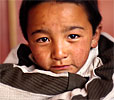Teacher Resources and Support Strategies for Overwhelmed Educators

Check out our blog for social-emotional learning articles, news, and more!
 Drugli, M.B., Larsson, B., and Clifford, G. (2006). Changes in social competence in young children treated because of conduct problems as viewed by multiple informants. Section of Child & Adolescent Mental Health, Department of Neuroscience, Norwegian University of Science and Technology, N-7489 Trondheim, Norway
Drugli, M.B., Larsson, B., and Clifford, G. (2006). Changes in social competence in young children treated because of conduct problems as viewed by multiple informants. Section of Child & Adolescent Mental Health, Department of Neuroscience, Norwegian University of Science and Technology, N-7489 Trondheim, Norway
Abstract
In the present study changes in social competence were examined in a clinic sample of 127 children aged 4-8. The children were recruited to a controlled treatment study because of conduct problems at home and were randomized to the Incredible Years parent training, combined parent training and child therapy or a waiting-list control-group. Assessments were conducted pre and posttreatment and at a one-year follow-up by multiple informants (mother, father, teacher and child). Parent training combined with child treatment showed most improvement in child social competence based on mother, father and child reports, however, father reports showed positive results for children treated with parent training only. Treated mothers and fathers showed a decrease in correlations in their reports of social competence in the child after treatment as compared to parents in the waiting-list condition. No generalisation effects to peer-relationships in day-care/school were found, neither on teacher or child reports. A broad perspective using multiple informants from different settings is needed when effects of treatment of young children with conduct problems are evaluated and should include various aspects of social competence.





